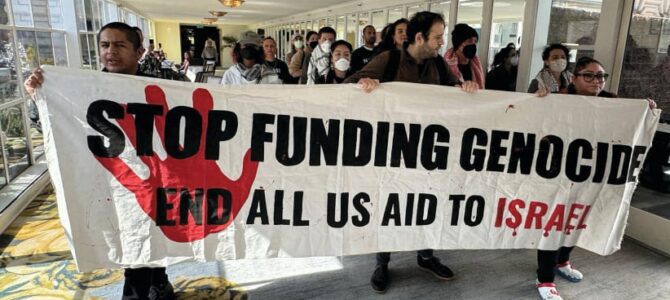by Efraim Zuroff
In recent years, we often encounter various attempts by people adversely affected by historical tragedies, or intent on campaigning for ostensibly “humanitarian” causes, to claim that their issue is equivalent to the Holocaust, or is in fact a case of genocide.
Whether it is those like PETA, who are campaigning for animal rights, who invoke Treblinka, one of the worst Nazi death camps, to pursue their goals, or those campaigning against abortions, who compare the plight of the aborted unborn children to that of the victims of the Shoa.
The same is true regarding the use of the term genocide, which in recent years has been applied in cases which do not fulfill the criteria of the original definition of that crime. What has happened in the past few decades, is that accusations of genocide have emerged as a political tool to be used against enemies to attain geographic and/or financial gains by claiming lost territory and/or reparations for damages incurred.
A glaring example is the upcoming United Nations General Assembly (UNGA) resolution to officially recognize the massacre of several thousand Bosniak Moslem men at Srebenica as a case of genocide. Yet anyone acquainted with that event, as well as with the original definition of “genocide,” knows very well that the crime committed by the Serbian troops does not fit the definition of genocide, for the simple reason that the women and children at Srebenica were ALL released unharmed.
In the realm of historical tragedies, the intent behind actions speaks volumes about their designation. The upcoming United Nations General Assembly (UNGA) resolution to officially recognize the Srebrenica massacre as a genocide is a well-intentioned move plagued by potential pitfalls that could exacerbate tensions rather than foster reconciliation.
The resolution, presented notably by Germany and Rwanda, two nations with their own dark historys of genocide, has stirred considerable debate. This is not merely an academic exercise in labeling but a significant political act with real-world repercussions.
Full op/ed here.


